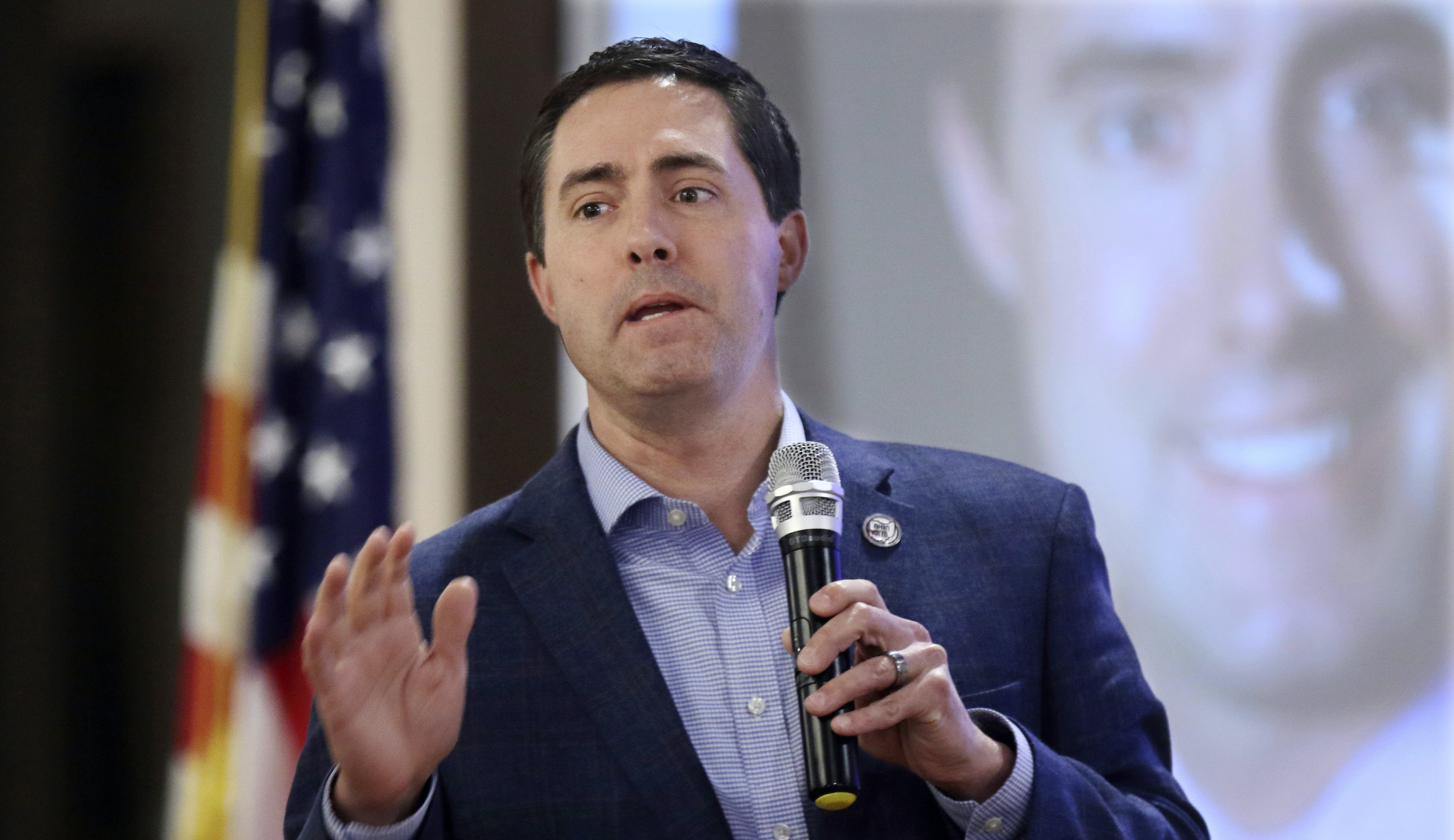Republican Secretary of State Frank LaRose is accusing the Libertarian Party in Ohio of trying to silence him after it filed an ethics complaint over his advocacy for a state ballot measure.
LaRose, the chief elections official in Ohio, has attended almost 70 events in support of Issue 1, a ballot initiative to make it harder to amend the state’s constitution. The measure, to be voted on next week, just months before Ohio voters decide whether to enshrine abortion rights in that constitution, is backed by Republican officials in the state.
NINE TAKEAWAYS FROM THE DEVON ARCHER TRANSCRIPT
The Libertarian Party of Ohio, which opposes Issue 1, filed a complaint on Monday with the U.S. Office of Special Counsel, arguing that LaRose, who announced a run for Senate in July, is violating the Hatch Act by blurring the lines between his advocacy and his duties as secretary of state.
The complaint points to his social media usage and a televised debate he participated in last month at which the moderators introduced him as the secretary of state.
LaRose responded to the complaint at length on Thursday in an interview with the Washington Examiner, calling it a “completely frivolous” attempt to undermine him and Issue 1.
The Hatch Act does not apply to issue advocacy, only candidate advocacy, he argued, adding that he attends Issue 1 events in a personal capacity, using his own car and campaign staff.
“I have lived under and been subject to the Hatch Act since I was a teenager,” he said, referring to his military service and subsequent career in state politics. “I know exactly what the Hatch Act is and what it does, and I would never violate it.”

LaRose, elected to a second term as secretary of state in November, has become the face of Issue 1, helping to galvanize conservatives in support of it. Republicans view the measure, which would set a 60% threshold to approve constitutional amendments, rather than a simple majority, as a way to counteract activist attempts to insert language into the constitution on everything from abortion to gun control. Democrats, meanwhile, say the “antidemocratic” ballot initiative is meant to entrench Republican power in the state.
LaRose maintains that he can wear two hats, administering a free and fair election while ginning up the Republican base, but critics say the advocacy presents a conflict of interest.
The ballot measure is not the first time there’s been friction between LaRose and the Libertarian Party. The group faults him for a 2013 law, passed during his time in the state Senate, that set a higher bar for minor parties to appear on the ballot.
Travis Irvine, communications director for the state party, compared Issue 1 to the ballot changes made a decade ago.
“It’s a big government takeover by the corrupt GOP legislature and the corrupt Republican establishment in Ohio,” he said. “Basically, to secure their power, much in the same way they did when they kicked the Libertarians off the ballot back in 2013.”
Yet LaRose says it’s the Libertarian Party that is undermining the democratic process with its complaint.
“It’s not unlike ‘cancel culture,’ and it’s funny that the Libertarians who claim to be for small government, limited government, want to use the levers of government to try to silence my voice,” he said.
The complaint, he argued, is merely political, targeting him because of his prominence on the issue.
“First of all, consider the source, right?” he said.
“They don’t like the fact that I’m working hard to make sure that Ohio can pass this important issue, and so they’re trying to roll marbles under my feet,” he added. “Well, I’ll kick their marbles out of the way — it’s not going to slow me down.”
Irvine, bristling at the “cancel culture” remark, accused LaRose of hypocrisy for “canceling our ballot access.”
Two law professors in Ohio broadly agreed that LaRose has a First Amendment right to political speech so long as his advocacy is carried out as a private citizen.
“If Secretary LaRose is using his private resources — car, staff, etc. — and it is clear that he’s speaking in his private capacity through his personal channels only, then the case that he is violating the Hatch Act does become more difficult,” Atiba Ellis, a professor at the Case Western Reserve University School of Law, told the Washington Examiner.
“I would want to see a clear separation between the official and private roles he is playing,” he said.
Ellis believes LaRose’s second argument, that his speech is protected because the special election is for a ballot measure, not a partisan contest, is “more debatable,” noting that the “key statutory language refers to ‘elections,’ without any qualifying language.”
His conduct could run afoul of the “spirit of the law” even if he is “technically correct,” he added.
LaRose said he is “cautiously optimistic” Issue 1 will pass on Tuesday, though high early voting figures have raised the prospect that Democrats are turning out to oppose the measure. Historically, the party is better at mobilizing voters ahead of Election Day.
CLICK HERE TO READ MORE FROM THE WASHINGTON EXAMINER
LaRose, challenging Sen. Sherrod Brown (D-OH) for his U.S. Senate seat, has faced almost daily attacks from the Ohio Democratic Party over Issue 1 as well, the ethics complaint included. The state, which former President Donald Trump won by 8 points in 2020, is viewed as one of Senate Republicans’ best pickup opportunities next year.
To reach the general election, LaRose will first have to beat two formidable GOP candidates, businessman Bernie Moreno and state Sen. Matt Dolan, in one of the most highly anticipated primaries of the 2024 cycle.

